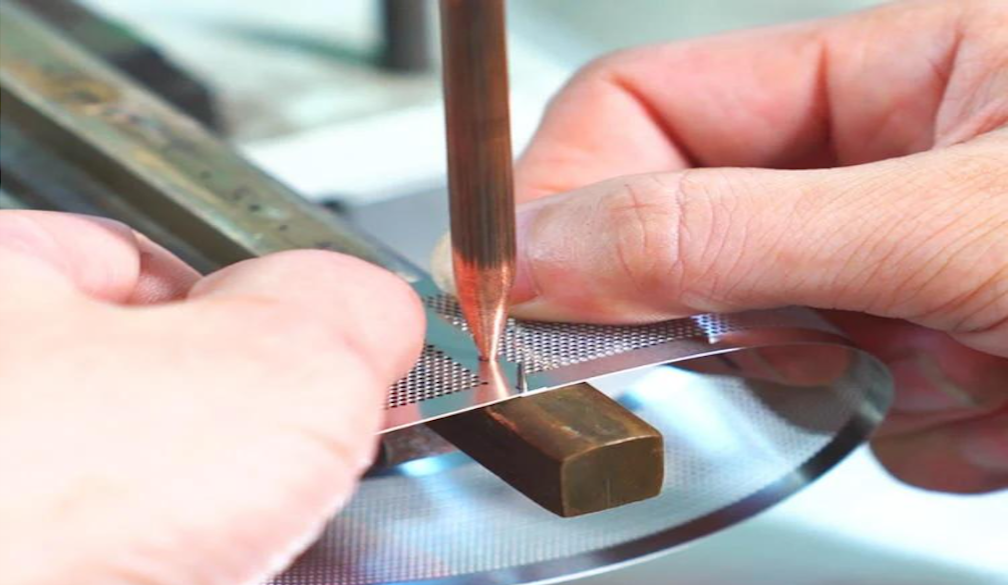The Benefits of Stainless Steel in Sustainable Products Manufacturing

The Benefits of Stainless Steel in Sustainable Products Manufacturing
A large part of what it takes to manufacture sustainable products ultimately boils down to choosing the right material. For this reason, stainless steel has become a popular choice for product manufacturing because it is durable and versatile yet also completely recyclable.
With these benefits, stainless steel product manufacturing stands out as a stellar option for businesses that are looking to create high-quality products while minimising their environmental impact. Let’s take a closer look at why stainless steel is a favourite in sustainable manufacturing.
Recyclability
One of the biggest advantages of stainless steel is that it is 100% recyclable. Stainless steel items can be melted down and reused to create new products without the material suffering any loss in quality. This is a highly desirable quality in a circular economy that seeks to minimise waste and conserve resources.
The recycling process for stainless steel is also highly energy-efficient and requires far less energy than it takes to produce new steel from raw materials. For manufacturers, this means a reduced carbon footprint, better alignment with sustainability goals, and an enhanced green reputation.
Versatility
Stainless steel offers significant versatility for manufacturers. Its combination of strength and visual appeal makes it ideal for a wide range of products, from household appliances and kitchenware to industrial machinery and automotive components.
In manufacturing, stainless steel is valued for its ease of fabrication and resistance to corrosion. These qualities allow stainless steel product manufacturers to produce products that not only perform exceptionally well but also maintain their appearance and functionality over time.
Whether for high-end consumer goods or heavy-duty industrial equipment, stainless steel enables manufacturers to diversify their product lines and meet a wide array of market demands.
Durability and Longevity
A product’s durability contributes to its overall sustainability. The longer a product lasts, the less often users must replace it, which means fewer such products need to be produced.
Despite being fully recyclable, stainless steel is engineered to last and does not corrode or wear out quickly. Appliances, industrial equipment, and consumer goods made from stainless steel can remain functional for decades. That is part of what makes it unique; other recyclable materials, such as aluminium, do not have the same level of durability and lifecycle benefits.
As such, stainless steel product manufacturing can lower production costs and reduces resource consumption, thereby minimising the environmental impact of manufacturing and making it a smart choice for eco-conscious consumers.
Improved Energy Efficiency
There is no denying that manufacturing stainless steel from scratch does require a significant amount of energy. However, when we consider the entire lifecycle of a stainless steel product, its overall environmental impact is far lower than that of less durable and non-recyclable materials – primarily because it has a long lifespan and can be efficiently 100% recycled.
Additionally, advances in technology have reduced both energy consumption and waste in stainless steel product manufacturing over the years, thus narrowing the energy efficiency gap.
Health and Safety
Unlike plastics, which can release harmful chemicals, stainless steel remains stable and safe under various conditions, making it non-reactive and non-toxic. It also has a non-porous surface, which allows it to be highly resistant to bacteria and other pathogens, as well as being easy to clean and sanitise.
As a result, stainless steel is an ideal and sustainable choice for products that must meet strict health and safety standards, especially in industries that require high hygiene levels such as healthcare and food and beverage. It helps to reduce the risk of contamination and maintain strict hygiene standards to create a safer environment.
Maintenance and Care
Another key advantage of stainless steel is its ease of maintenance. It is easy to keep stainless steel looking new and performing well with just some regular cleaning using simple agents. With proper care and maintenance, stainless steel products can continue to meet performance standards for years.
This long-term durability reduces the need for replacements and lowers the total cost of ownership (TCO) for consumers, enhancing the product's overall value for consumers and driving demand higher. As such, stainless steel is a strategic choice for product manufacturers.
Aesthetic Appeal
Apart from its functional and sustainability benefits, stainless steel is highly valued for its sleek, modern appearance.
Its durability, ease of maintenance and ability to maintain a polished finish over time makes it a popular choice in high-visibility areas or aesthetic applications such as in consumer electronics, kitchen appliances, and architectural elements.
Investing In Sustainable Stainless Steel Product Manufacturing
Stainless steel is known for its strength, durability and stability, but beneath that resilient exterior lies a highly sustainable nature. Whether the market demands strength or style, its exceptional qualities make it ideal for various applications to meet both needs. Other benefits include being able to save energy during production and reduce waste due to its long lifespan.
As such, stainless steel product manufacturers have the advantage of being able to improve their products, save on costs, support a more sustainable product lifecycle, reduce environmental impact, and align with global sustainability standards – all messages that appeal to a growing base of environmentally conscious consumers.














